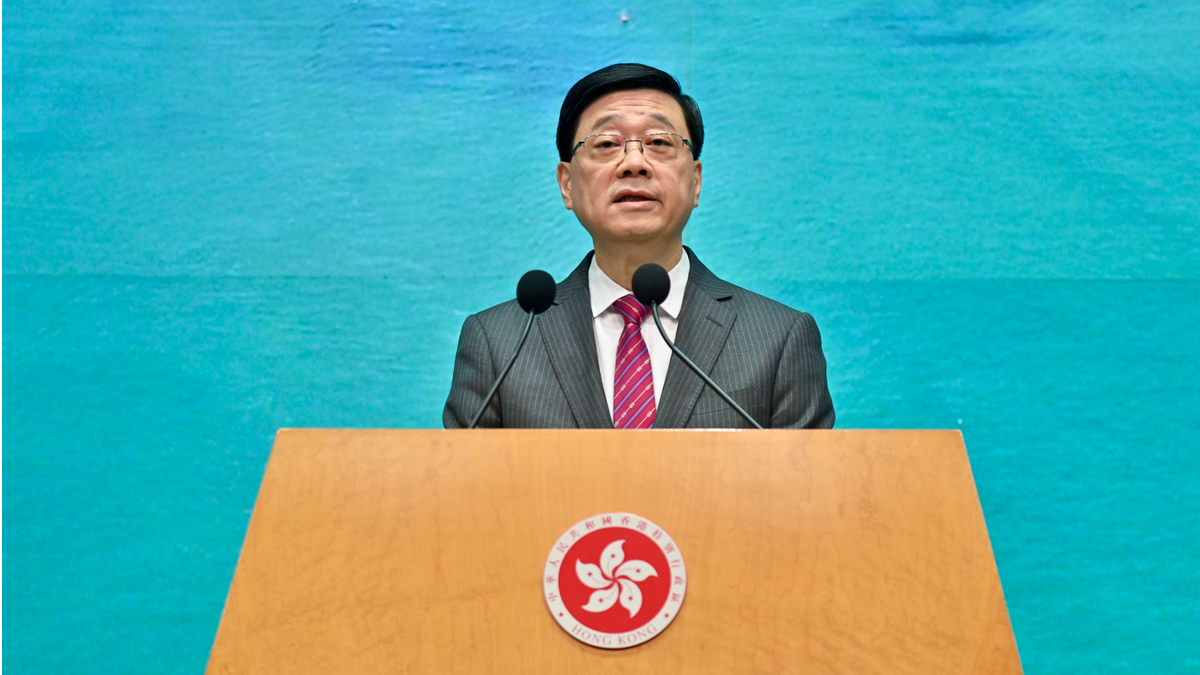
Officials and experts on Tuesday hailed Hong Kong’s rise as the world’s third-most-competitive economy, urging the city to maintain its advantages and policy flexibility while boosting innovation and infrastructure collaboration within the Guangdong-Hong Kong-Macao Greater Bay Area (GBA).
The Switzerland-based International Institute for Management Development issued its annual world competitiveness ranking on Tuesday. The Hong Kong Special Administrative Region rose two places to rank third globally out of 69 economies, marking its first return to the top three since 2019.
The city scored 99.2 out of 100 in the overall ranking, a 7.7-point year-on-year increase that represents the highest jump among the top 10 economies, trailing only Switzerland, which scored 100, and Singapore’s 99.4.
READ MORE: HK maintains third place in global financial center rankings
Speaking ahead of the weekly Executive Council meeting, Chief Executive John Lee Ka-chiu said Hong Kong’s climb up the rankings reflects widespread recognition of the city’s world-class business environment, legal system, tax policy, and financial services as well as the free flow of people, data and capital.
The achievement proves that the SAR government is moving in the right direction, and policies put forward by the administration have achieved positive results, Lee noted.
Lee said he is encouraged by the fact that the efficiency of the Hong Kong government was rated as the second best in the world, saying it demonstrates the expertise of the city’s public servants and the effectiveness of his efforts in cultivating a “result-oriented” culture in the government.
Hong Kong is currently in an economic transformation period, according to Lee, and some industries are facing challenges, such as the retail and catering sectors.
The authorities will continue to support different sectors and utilize the roles of superconnectors and super value creators to explore new markets, boost the economy, promote development and improve people's livelihoods, Lee added.
Hong Kong also achieved better results in major sub-rankings, with “governance efficiency” rising from third to second place, “business efficiency” increasing to second from seventh, “economic performance” from 11th to sixth, and “infrastructure” climbing from ninth to seventh.
In terms of international investment, a criterion under “economic performance”, Hong Kong surpassed economies like Singapore and Switzerland, taking second place worldwide.
Terence Chong Tai-leung, executive director of Lau Chor Tak Institute of Global Economics and Finance at the Chinese University of Hong Kong, highlighted the city’s sustained core strengths underpinning its competitiveness — including free capital flow, a stable linked exchange rate system, and robust financial infrastructure — that maintains its position as the world’s top-three financial center.
Chong advocated for deepened financial market development — particularly in fintech, Middle East-focused financial products, and ESG offerings — to further bolster the city’s global standing.
Hong Kong lawmaker Johnny Ng Kit-chong highlighted Hong Kong’s unique advantages that attract tech enterprises, such as its common law system safeguarding intellectual property, a strategic geographical location, advanced telecommunications networks, stable power supply, and mature submarine cable systems. All reinforce the city’s standing as a digital hub helping international businesses access the Chinese mainland, and mainland firms expand globally.
Ng emphasized opportunities to strengthen scientific infrastructure through regional synergy, pointing out challenges faced by local universities in transforming research outcomes due to limited industrial-academic integration.
He urged accelerated deployment of large-scale research facilities via cross-border collaboration within the Greater Bay Area, avoiding redundant construction while leveraging existing mainland resources.
READ MORE: Hong Kong hailed as world’s freest economy once again
Credit rating agency S&P Global Ratings said the improvement of policy flexibility and effectiveness of the Hong Kong government has allowed it to award a stable outlook on the SAR’s long-term rating. Legal and legislative changes have also improved policy implementation efficiency in recent years.
The ASEAN+3 Macroeconomic Research Office commented: “The government’s efforts to enhance Hong Kong’s global presence are proving effective.”.
The economic surveillance organization suggested the Hong Kong SAR should pursue deeper integration with other cities of the Greater Bay Area, and diversify its economic relationships through expanding trade partners and global linkages.
Contact the writer at stephyzhang@chinadailyhk.com


